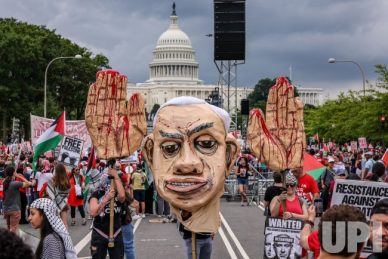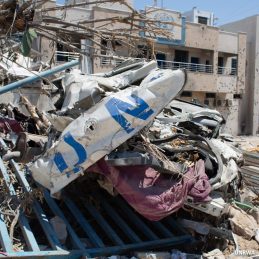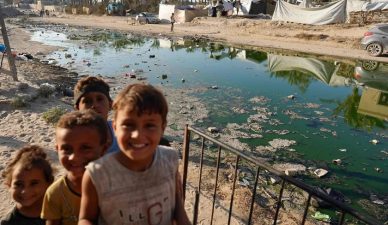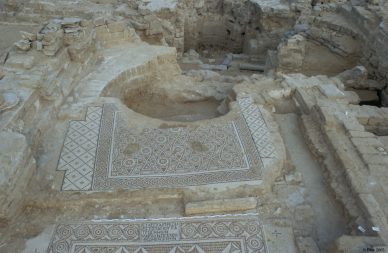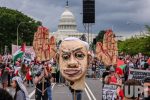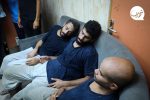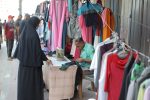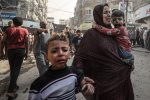By Wafa Aludaini
With no smell of Eid cookies or Alfesikh —salted or fermented fish — wafting through the neighborhoods and towns across the bereaved Gaza Strip, with no decorations to brighten their homes, with no lanterns hanging in the streets everywhere, with no busy markets before Eid, and with no new clothes or toys, Palestinians across the Gaza strip are marking Eid al-Fitr, the end of the holy month of Ramadan, under the pall of the relentless devastating Israeli aggression. The starving population is doing their best to follow Eid al-Fitr traditions and rituals, but the brutal reality of living through the non-stop atrocity which has massacred more than 33,300 Palestinians and left countless thousands of others trapped under the debris of their homes, does not leave room to celebrate the normally blissful Eid holiday. The Israeli offensives have smashed entire city blocks, destroyed markets, demolished amusement parks, and reduced restaurants to rubble. According to the Gaza municipal media office, more than 70% of homes, buildings, and related infrastructure are destroyed.
While many Palestinians started their Eid day attending traditional prayer services, others attended funeral services after Israel committed a massacre in Nusairat refugee camp on the eve of Eid, slaughtering at least 14 people, mostly children and women after striking their homes. In Khan Younis, in the southern Gaza Strip, other people gathered on plastic tarps and prayer mats outside the wreckage of a destroyed mosque.
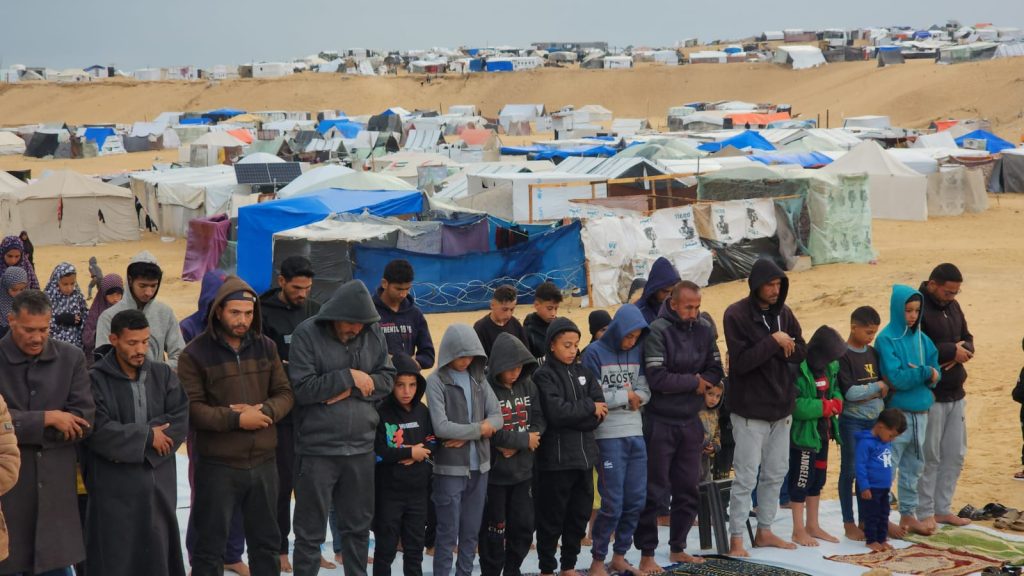
Standing in the shattered street, local teacher Ahmad Alastal said, “No one and nothing can prevent us from doing Eid rituals. We began our Eid day with Eid prayer.” Customarily, Palestinians usually attend Eid prayer at their mosques in the morning, then greet each other with holiday blessings. It is common for children to receive ‘idiyyah, money or small gifts from their elders. Gathering with other Palestinians outside the bombed mosque in the morning, Alastal affirmed, “It’s a message to the Israeli occupation that despite your destruction to our mosques and the massacres of our loved ones, we will keep the ritual of the Muslim festival of Eid alive.”
In the face of the devastation, some volunteers have organized initiatives to honor the holiday, and the voices of children singing and enjoying simple things like homemade swings or riding animals have helped soften the mood for some people.
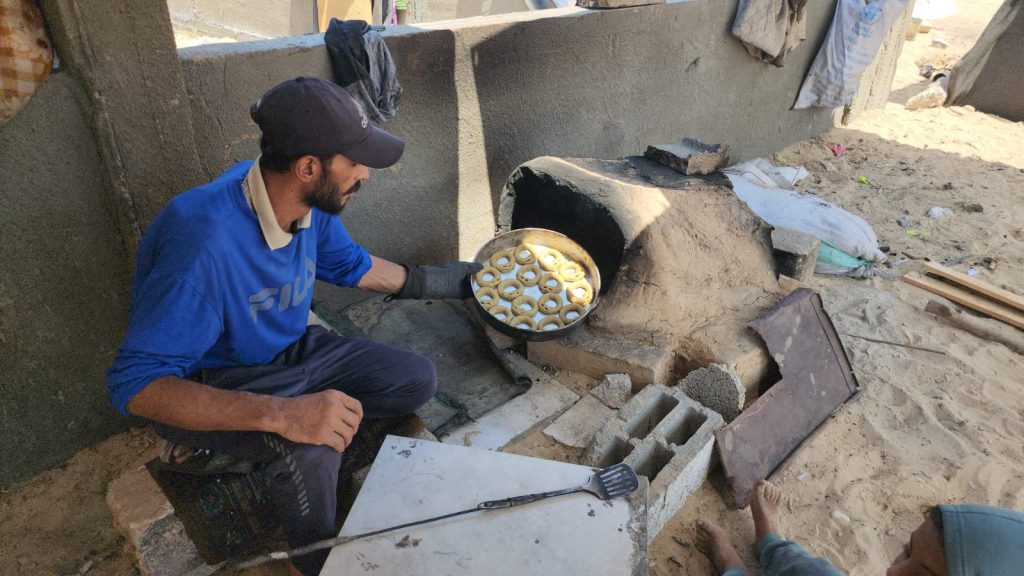
In their makeshift tent in a sheltering zone in Rafah, the southernmost part of the tiny costal enclave where around 1.5 million displaced Palestinians are currently sheltering, a group of displaced women gathered to make ka’ik, ring-shaped cookies stuffed with date paste.
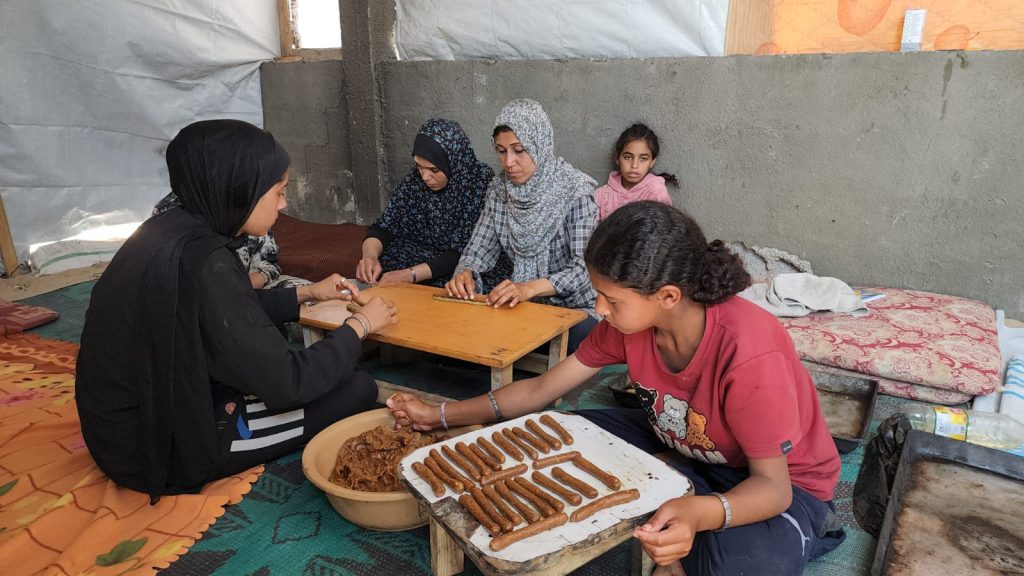
“Not all of the ka’ik ingredients are available here in the south, but we are trying to bring joy to the kids and everyone here,” Om Ahmad, 38, one of the volunteers, said. During Eid, it’s customary in Gaza to make large batches of ka’ik and somaqyya, a meat stew cooked with sumac and tahina, for guests and to distribute to relatives and neighbors.
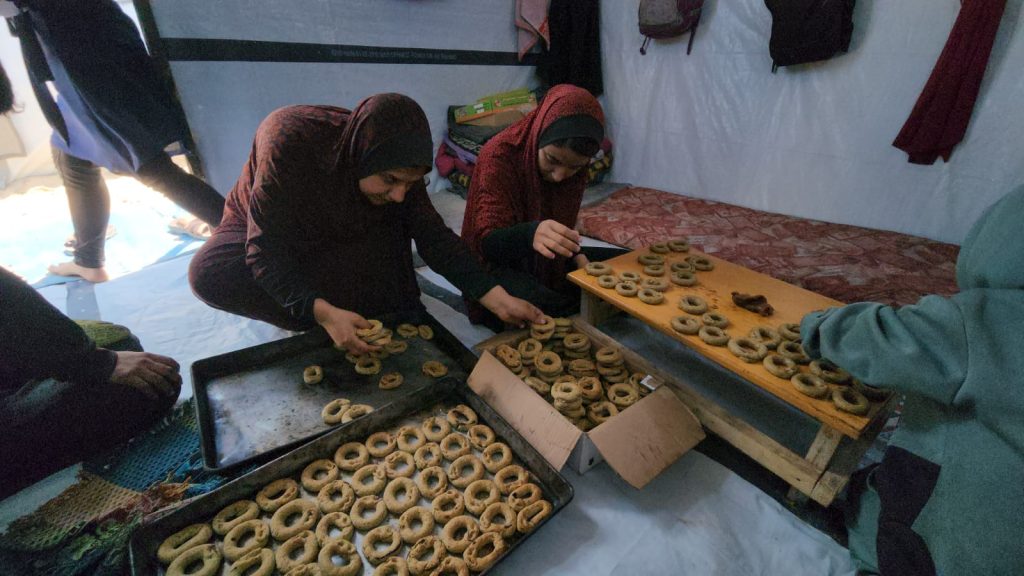
“My extended family are still in the north, where they face imminent famine,” Om Ahmad continued. “There are no ingredients at all; they can’t even find food to eat.” 2 million Palestinians, almost 90% of the population in Gaza, are currently displaced and struggling to find enough food and water. “The least thing we could do here is to make peaceful atmosphere despite the ongoing assault is casting a shadow over Eid festivities.” She reminisced about how they used to buy new clothes, nuts, cookies, decorative light fixtures, and even new furniture days before Eid but now they feel pain as they can’t afford any of these usual holiday luxuries. “So, making ka’ik is the least that we can do, as an act of resistance that bring happiness to everyone despite the ongoing genocide.”
Another holiday initiative comes from Palestinian barbers who volunteered to cut the children’s hair. “We decided to help in making a joyous atmosphere in this sheltering zone in Rafah,” Ahmad Madi, a barber, said, adding, “The children were so happy to bring in Eid with new styles.”
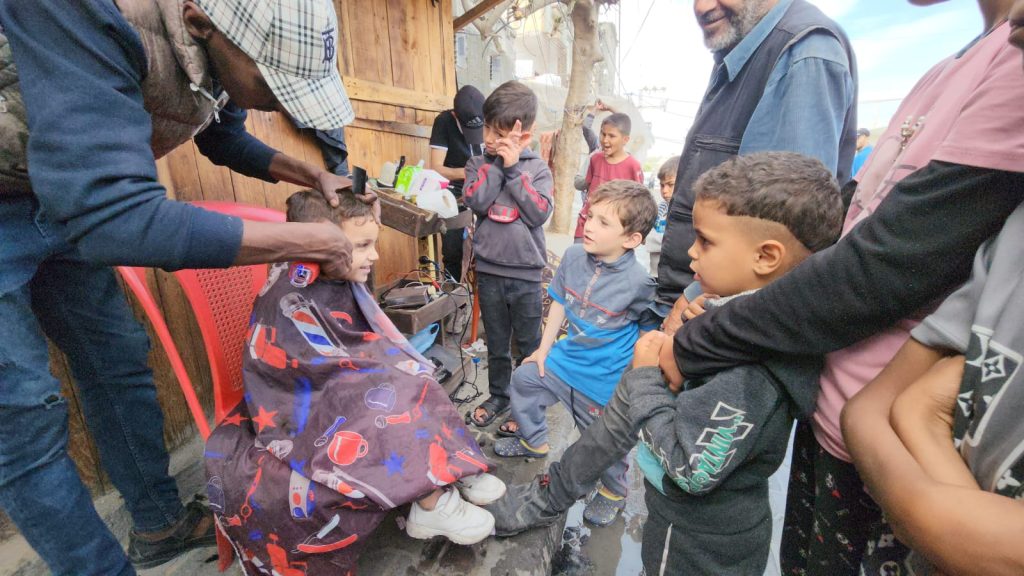
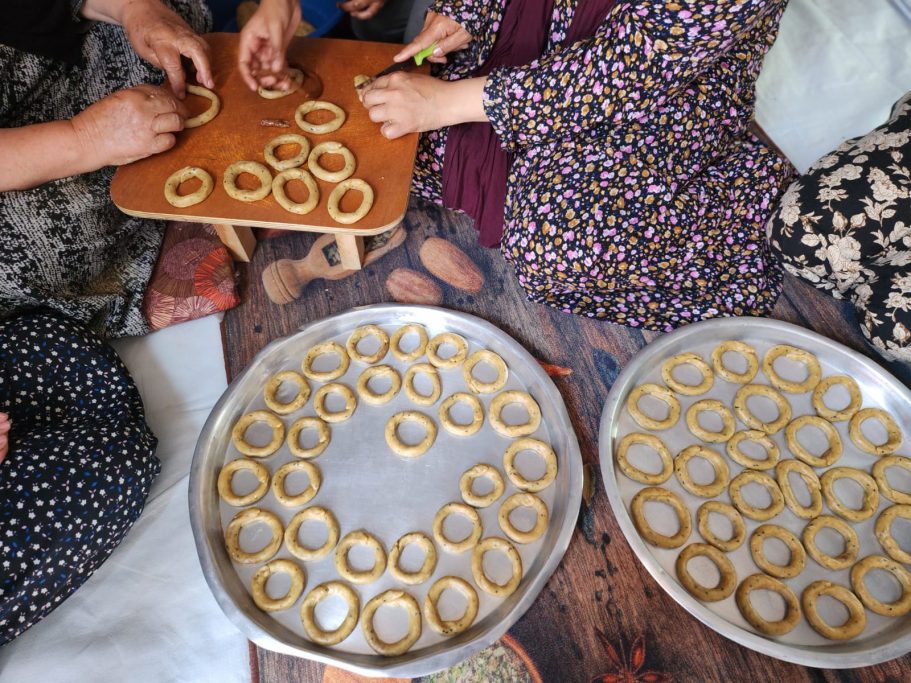
Eid is the 3-day festival of breaking fast following a month of fasting. It is traditionally a period of great festivities, with families and friends coming together and sharing large meals. In Gaza this year, with so many bereaved and orphaned people who have lost loved ones or entire families, Eid means for them a reawakening of memories with their dead relatives. Some go to graves to visit their slain loved ones on the first day of Eid, pray for them and ask others to pray for them.
Shahed Adini, 20, the only remaining survivor of her family, who were massacred in an Israeli airstrike that targeted their home in Deir AlBalah, said, “I can’t taste joy and I don’t have the appetite for celebrating this holy occasion without my family and home.” She recalled bitterly, “We use to get together and visit each other and celebrate and have fun and help each other clean up our homes and gather all together to make Eid cookies and now all of it is gone.”
-Wafa Aludaini is a Gaza-based journalist. She contributed this article to the Palestinian Information Center.


